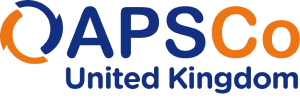How to Stand Out in a Competitive Commercial Job Market: Essential Strategies for Success
The commercial job market in 2025 is more competitive than ever. With many talented applicants vying for each role, it’s crucial to find ways to stand out from the crowd. Employers are looking for candidates who can bring unique value to their organisations.

To excel in this tough job market, job seekers need to polish every aspect of their applications and showcase their specific skills and experiences. This means crafting a strong CV, building a personal brand, and preparing thoroughly for interviews. It’s not just about listing qualifications; it’s about demonstrating how you can add real value to a potential employer.
Digital tools and personal branding have become key elements in the job search process. By leveraging online platforms and tailoring applications to each role, candidates can position themselves as top choices. Patience and persistence are also vital, as finding the right job may take time in such a competitive landscape.
Developing Your Personal Brand

Building a strong personal brand is key to standing out in the commercial job market. It helps showcase your unique skills and value to potential employers.
Crafting a Professional Online Presence
A polished online presence is crucial for personal branding. Job seekers should create a consistent image across platforms. This includes using professional profile photos and writing clear, engaging bios.
Key steps: • Choose 2-3 platforms to focus on (e.g. LinkedIn, Twitter, personal website) • Use a high-quality headshot for profile pictures • Write a concise bio highlighting key skills and experience • Share relevant industry content and insights regularly
Curate content carefully. Everything posted online contributes to one’s personal brand. Remove or make private any unprofessional material from social media accounts.
Leveraging LinkedIn to Showcase Achievements
LinkedIn is a powerful tool for personal branding in the commercial sector. A well-crafted profile can attract recruiters and hiring managers.
Tips for an effective LinkedIn profile: • Write a compelling headline with relevant keywords • Craft a detailed summary highlighting key strengths • List notable achievements for each role, not just job duties • Include skills that match desired positions • Request recommendations from colleagues and managers
Use LinkedIn to share industry insights and engage with others’ content. This helps build authority in one’s field. Join relevant groups and participate in discussions to expand professional networks.
Importance of Networking and Professional Development
Networking is vital for personal brand growth. It helps job seekers gain visibility and access opportunities. Attending industry events and conferences allows for valuable face-to-face connections.
Professional development enhances personal brands by expanding skillsets. This can include: • Taking online courses or obtaining certifications • Reading industry publications and books • Seeking mentorship from experienced professionals • Volunteering for projects outside one’s current role
Continuous learning demonstrates dedication and adaptability. These traits are highly valued in the competitive commercial job market. Job seekers should highlight new skills and knowledge on their CVs and LinkedIn profiles.
Mastering the Art of Resume Writing

A well-crafted resume is crucial for standing out in today’s competitive job market. It showcases your skills, achievements, and qualifications in a clear, concise manner that grabs employers’ attention.
Highlighting Skills and Certifications
Your resume should spotlight the skills and certifications most relevant to the job you’re seeking. List key technical and soft skills near the top, using bullet points for easy scanning. Include specific achievements that demonstrate these skills in action.
For certifications, list the most pertinent ones first. Include the certification name, issuing organisation, and date obtained. If you have many certifications, focus on those most valued in your industry.
Don’t forget to mention any additional certifications or ongoing training. This shows your commitment to professional growth and staying current in your field.
Optimising for Applicant Tracking Systems
Many companies use applicant tracking systems (ATS) to screen resumes before human eyes see them. To pass this digital gatekeeper, tailor your resume to each job application.
Study the job advert carefully. Pick out relevant keywords and phrases, then weave these naturally into your resume. Use standard section headings that ATS can easily recognise, such as “Work Experience” and “Education”.
Avoid fancy fonts or complex layouts that ATS might struggle to read. Stick to clean, simple designs and common file formats like .docx or .pdf.
Remember to update your resume regularly with new skills and achievements. This ensures it always reflects your current capabilities and career progression.
Effective Job Search Strategies

Finding success in a competitive job market requires smart tactics and proactive efforts. Job seekers can gain an edge by leveraging online tools and engaging with industry professionals in-person.
Utilising Job Boards and LinkedIn Learning
Job boards are a key resource for finding openings. Popular sites list thousands of positions across industries. Job seekers should check these daily and set up email alerts for relevant roles.
LinkedIn is another vital tool. Its job search function allows filtering by location, company size, and more. The platform’s Learning feature offers courses to boost skills and knowledge. Taking relevant classes shows initiative to potential employers.
Tailoring CVs and cover letters for each application is crucial. Use keywords from the job description to pass applicant tracking systems. A well-crafted LinkedIn profile can also attract recruiters’ attention.
Engaging in Industry Events and Discussions
Attending industry events provides networking chances and insights into company cultures. Job fairs, conferences, and meetups are great for making connections. Prepare an elevator pitch and bring business cards to these gatherings.
Online forums and social media groups offer spaces for industry discussions. Joining these conversations shows expertise and passion. It can lead to learning about unadvertised job openings or volunteer opportunities.
Following companies of interest on social media keeps job seekers informed about their activities and values. This knowledge is useful for tailoring applications and interview responses.
Acing Interview Techniques

Mastering interview techniques is crucial for standing out in a competitive job market. Candidates who prepare thoroughly and showcase their fit with the company have a distinct advantage.
Understanding Company Culture and Values
Research the company’s mission, values, and culture before the interview. Look at their website, social media, and recent news. This knowledge helps tailor responses to align with the company’s ethos. Prepare examples of how your work style fits their culture. Be ready to discuss why you’re drawn to their values. Show genuine interest by asking thoughtful questions about the workplace environment. This demonstrates you’ve done your homework and are truly keen on the role.
Preparing for Common Interview Questions
Practice answers to typical interview questions. Focus on your skills and experiences that match the job description. Use the STAR method (Situation, Task, Action, Result) to structure responses. Prepare concise examples that highlight your achievements. Tailor your answers to showcase how you can add value to the company.
Common questions include:
- “Tell me about yourself”
- “Why do you want this job?”
- “What are your strengths and weaknesses?”
Be ready to discuss your career goals and how they align with the role. Practice your responses out loud to build confidence. Remember to keep answers brief and relevant.
Continuous Professional Growth
Staying ahead in a competitive job market requires ongoing skill development and relationship building. Professionals who commit to lifelong learning and expand their networks gain valuable advantages.
Embracing Continuous Learning and Additional Certifications
Successful professionals make learning a habit. They seek out training courses, workshops, and webinars to build new skills. Many pursue additional certifications to boost their credentials. Online platforms like Coursera and edX offer flexible options for upskilling. Industry conferences provide exposure to emerging trends and best practices.
Reading industry publications and following thought leaders on social media helps professionals stay current. Some companies offer tuition reimbursement for relevant courses or degrees. Taking on stretch assignments at work can provide hands-on learning opportunities. Developing leadership skills through management training programmes is valuable for career growth.
Expanding Your Professional Network
A strong network opens doors to new opportunities. Professionals should attend industry events and join relevant associations. LinkedIn is a powerful tool for connecting with peers and potential mentors. Engaging in online forums and discussion groups allows knowledge sharing.
Informational interviews with leaders in one’s field provide career insights. Volunteering for industry organisations builds connections while giving back. Alumni networks can be valuable sources of advice and job leads. Building relationships with colleagues from other departments broadens one’s perspective.
Professionals should nurture their network by staying in touch and offering help when possible. A diverse network spanning different industries and roles provides a competitive edge.
Looking for Change?
Check out our latest Job Listings

